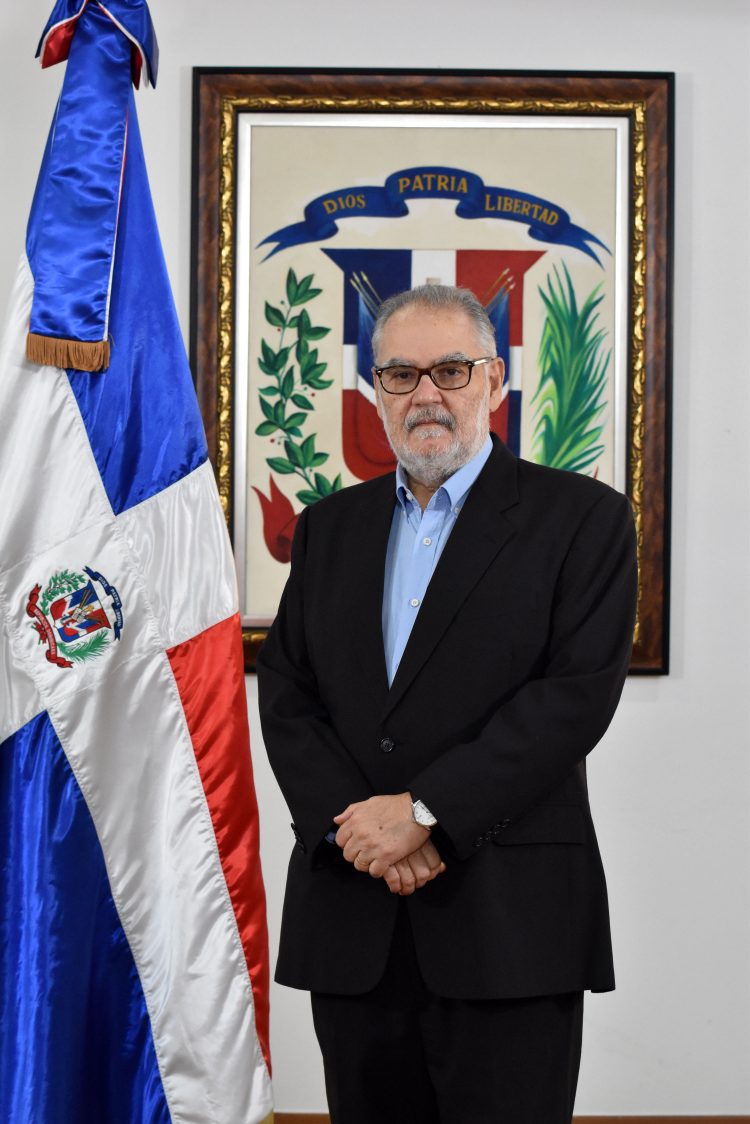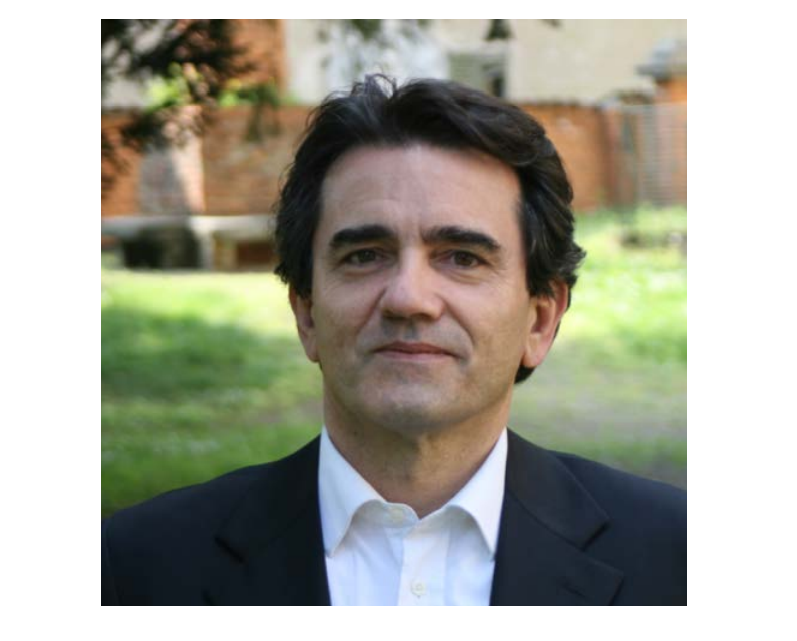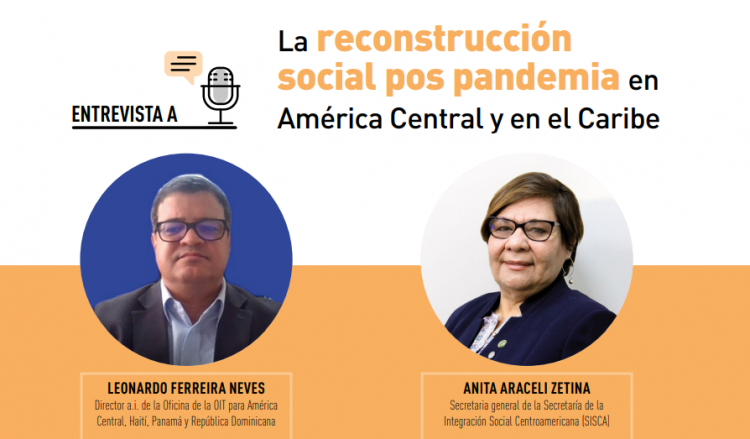The EUROsociAL magazine, interviewed Carlos Arango, an advisor to the Colombian Ministry of Labour, and Françoise Goffinet, an associate of the Belgian Institute for the Equality of Women and Men (IEFH), to find out what view there is of this problem from both sides of the Atlantic. Questions asked by Jackeline Rojas, Senior Technician in the EUROsociAL+ Gender Equality Are

What actions has your organisation implemented to promote work equality in the context of the pandemic? (JR)
Carlos Arango: Towards the beginning of the pandemic, the Ministry of Labour prepared a practical guide on “Labour Alternatives with a Gender Perspective in Times of COVID”, with practical recommendations on how to manage work at home from a gender perspective. This guide was distributed by private and public companies and organisations, to take into account the realities of workers during lockdown.
As a result of this guide, some companies with the “Equipares” labour equality certification were able to make adjustments to the dimensions addressed by the programme, in order to incorporate the new social and cultural reality into the action plans for closing gaps.
Apart from this, in company with the Colombian National Business Association (ANDI), we are carrying out awareness days for companies and organisations, aimed at not lowering our guard on gender equality issues in the business world and managing labour inequities between men and women in a timely manner.
Françoise Goffinet: The IEFH is a Belgian federal public institution whose mission is to promote equality in attitudes and practices. One of its roles is to formulate opinions and recommendations. In May 2020, the IEFH sent an opinion report to the Federal Minister of Employment, the Economy and Equality on “the gender dimension in the COVID crisis” to highlight how women are being more affected as they are at the forefront of employment during the pandemic: 80% women in the hospital sector, 88% in homes for the elderly, 96% in nurseries, 95% in the home help sector and 60% in the retail sector. In short, all the sectors that continued to work full time during full lockdown!
The IEFH also worked with affiliated entities, through protocols; for example, in drafting an opinion on its own initiative for the Walloon Council for the Equality of Women and Men (July 2020) and in the formulation of an opinion on the plan for women’s rights by the Wallonia-Brussels Federation.
What actions have been implemented to face or prevent the loss of employment by women in the context of the pandemic, taking into account that women are more exposed to unemployment, informal employment and work in insecure and less productive sectors? (JR)
Carlos Arango: At the beginning of April, the increase in cases of violence exceeded 115%. Which is why we began a process of coordination with several actors to generate employment alternatives aimed at overcoming violence against women, especially during these weeks of lockdown. In the first pilot phase, we worked with the Public Employment Service Employment Agencies in Bogotá and Medellín to identify a route for giving women victims of gender-based violence a quick and appropriate opportunity in the labour market, taking into consideration the profile required by each company. With one of the Equipares companies belonging to an essential public service sector, the opportunity to link them to work was identified.
The Presidential Council for the Equality of Women, will provide technical assistance and training to Employment Agencies based on the psycho-social approach, while for businesses and for the women hired, this mechanism will monitor the process of adapting to employment, leveraging the corresponding Women’s Secretariats and branches of the women’s rights organisation Casa de la Mujer.
Françoise Goffinet: Social partnership is an institution in Belgium that showed just how important it is during the crisis. In 2003, the three unions signed a letter on equality between women and men. In March, the social security system, which is co-managed by the state, trade unions and employers, launched a system of temporary unemployment assistance for workers and temporary financial support for self-employed workers and entrepreneurs.
According to the Belgian Business Federation, the relief measures are working and enabling many companies to get through the crisis. Small businesses that are run by women are suffering proportionately more.
What good practices have you identified that businesses/organisations in the public/private sector have implemented to prevent the gender gap from widening in the health crisis? (JR)
Françoise Goffinet: I wouldn’t yet refer to “good practices” but rather to promising pointers towards achieving the policies in place since the International Women’s Conference in Beijing in 1995. The vast majority of these heroes in the pandemic are actually heroines, with jobs with one point in common: poorly paid, undervalued, but essential. In the summer of 2020, the Federal Government and the union organisations concluded a revaluation agreement with sustainability and a better endowment of the White Coats Fund for nursing staff.
Parental leave applied in the context of the crisis was implemented, which is not deducted from the number of months to which fathers and mothers have rights. A slight increase in compensation was made, especially for single-parent families (80% of single parents are women) who were usually unable to take leave for financial reasons.
Teleworking (working from home) was discovered in both public services and private sector companies. However, situations that mainly affect women became apparent, such as “digital illiteracy”, conditions in terms of health and safety and an increase in the mental burden of care.
Carlos Arango: Some of the good practices identified have been related to improvements in the balance between work, family and personal life, from a gender perspective. Therefore, the Equipares Seal, in coordination with ANDI, launched a Work-Life Balance survey which will provide companies with inputs on how workloads and unpaid work are being distributed in workers’ households.
Some organisations have decided to establish flexible work-from-home hours, flexible meeting schemes, which allow working people to better distribute care burdens in their homes, and encourage men to take part in these tasks.
What plan is envisaged to promote the economic autonomy of women and work equality in a context of post-pandemic reconstruction? (JR)
Françoise Goffinet: Since 2007, the IEFH has supported the publication of an annual report on wage gaps and a 2012 law promotes instruments at the inter-professional, sectoral and company levels. But there is still much to do, training the new representatives after each social election, but also improving transparency regarding salaries; which ties in with a current concern of the European Commission.
Carlos Arango: During this time, we have begun to improve the Employment Route with a Gender Approach with the Public Employment Service. Taking into consideration the economic sectors that are being reactivated, the rates of gender-based violence and the need to provide economic autonomy for women, alliances are being arranged with companies and organisations that are restarting their operations throughout the country, to prioritise the linking of women and thus mitigate unemployment rates.




